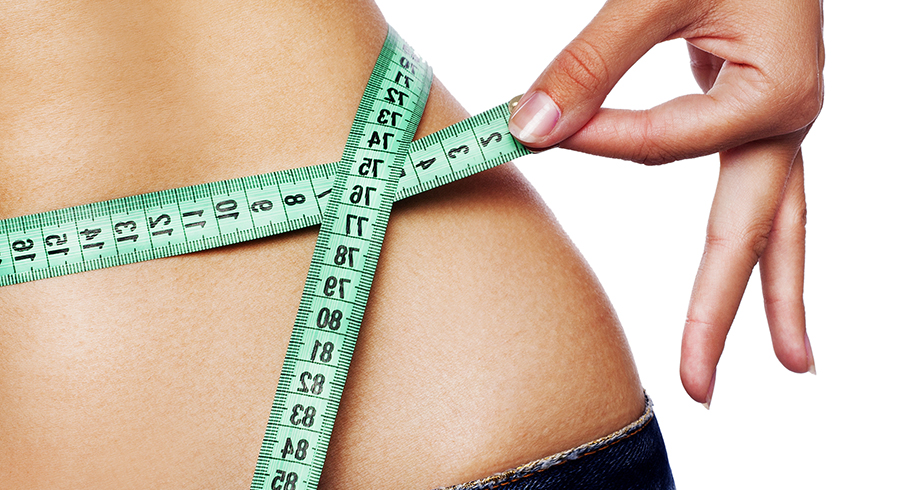For a long time, the common wisdom perpetuated by popular culture was that the number on your scale determined how healthy you were. This concept of metric measurement of kilograms (or pounds) didn’t just define physical weight, it defined health, wellness and attractiveness.
We’re here to tell you that this is not wisdom. It’s a small part of the entire story, and for weight loss to be effective, you need the whole picture.
Context is important

As with most complex subjects, weight loss requires an understanding of a related topic: Body composition. This allows us to keep the number on the scale in perspective, and give a clear picture of what that number constitutes.
Your body weight is made up of plenty of things like:
- Vital Organs
- Skeletal Structure
- Muscles and Tendons
- Fat Content
When you diet or workout, you’re changing two factors: Muscle mass and fat content. BOTH of which factor into your final number on the scale. Therefore, a gain or loss in weight can any one or more of the following factors:
- Loss of muscle mass
- Loss of fat
- Increase in muscle mass and loss of fat
- Increase in fat and loss of muscle mass
So, what does this mean? Well, it means that a person who’s of the same height and weight as you might be healthier than you if she has more muscle mass and less fat. Alternatively, if someone has a higher fat to body mass ration, but doesn’t weigh as much as you do, might have bigger issues like visceral fat in their organs.
What should you be looking out for?

Well, a good indicator of your overall health and fitness would be a lower body fat percentage. For most women in Asia, an average body fat percentage would be 17% – 24%, but because of the varied genetic heritage we possess in Singapore, we can swing wildly between 17 – 30%. However, if you are athletic and exercise regularly, you will tend to fall below 17%. It is important not to go below 12% of your body weight because the body needs fat to survive!
You should also be looking out for your resting heart rate (RHR). The average resting heart rate for an adult falls within 60-80 beats per minute (bpm). However, if you subject your body to regular cardio and eat well, you will lower your RHR to the range of 40 – 60 bpm. Anything below 40 bpm falls into the realm of elite endurance athletes.
So, regardless of your actual weight and height (BMI is an outdated, inaccurate indicator of health), you should be:
- Within the 13% – 24% body fat range
- Possess a RHR of 40 – 80 bpm
There are precedents!
In case you’re wondering, there have been plenty people out there who have successfully lost weight using this approach.

Staci has one of the most impressive stories we’ve heard in a while. She initially focused on cardio at the gym and got really skinny, going from 77kg to 53kg. However, she was falling ill consistently and feeling unwell all the time.
In a bid to regain her health, she started eating well and started powerlifting. The weights ended up helping her get stronger and leaner. She actually gained about 6kg, but you’d never guess that from how sculpted her body looks now.
Jennifer, on the other hand, started out wanting to be skinny. The crash diets and starvation made her unhealthy, and she was stuck with her weight. However, when she saw her newly hired personal trainer preparing for a bodybuilding contest, she was intrigued by the transformation he had to go through. She got started on strength training and high-intensity interval workouts, and ended up dropping 34kg.
In both cases, real weight loss only occurred once attention shifted from simply observing weight scales and calorie counts to understanding that body composition and macronutrient intake mattered. Both ladies also made it a priority to bring up their muscle mass and lowered their body fat, and eventually dropped a large amount of weight in a sustainable manner.
Feelin’ good, lookin’ fine

At the end of the day, your endeavour in weight loss should never make you feel bad. You can be exhausted from a workout and hungry from a diet, but you should never have a permanent feeling of negativity from looking at a number on your weighing scale.
Instead, if you’re doing fine on the body fat and heart rate front, you should take heart in the knowledge that you’re eating properly and keeping up a good workout schedule, even if the number on your scale has gone up by a kilo. You might even rejoice in the knowledge that you’re gaining lean muscle mass!
Remember: All workout and food intake should be viewed in a positive light. Eat well, keep up those workouts, and you’ll be looking great in no time at all!



